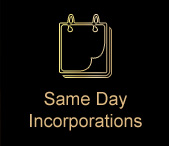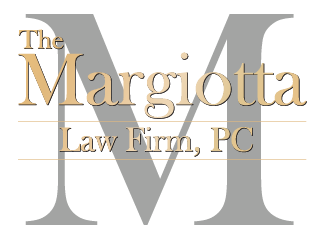Filing Requirements
file an Assumed Name Certificate with the clerk of the county(ies) in which the business is conducted ONLY IF you are operating under a name other than the proprietor’s (no formation document is required).
Lifespan
is determined by the individual (proprietorships automatically cease on the retirement or death of the sole proprietor).
Personal Liability
full — a sole proprietor is personally responsible for all debts of his or her business.
Taxation
Business income is reported and taxed through the sole proprietor’s personal tax return. The business owner must pay personal income taxes for all net business profits, but they may deduct a net business loss from personal income taxes.
Advantages
- Easy to maintain
- Business and owner are legally the same entity
- Owner receives all profits.
- Easier start up, no required filing fees.
- Owner is free to make own decisions.
Disadvantages
- Owner’s ability to raise capital is limited to personal funds and the funds from people who are willing to give the owner loans, which can limit the size of the business.
- The business may come to an end at the owner’s death, it does not continue unless transferred to heirs, but when it is transferred to family or heirs a new sole proprietorship is created.
Filing Requirements
file an Assumed Name Certificate (following an agreement of the partners) with the clerk of the county(ies) in which the business is conducted.
Lifespan
is for a designated period stipulated in the partnership agreement; OR until a dissolution event occurs.
Personal Liability
Liability is joint and individual for the general partners who are responsible for the obligations of the partnership, including all debts, judgments or other liabilities of the business.
Taxation
A general partnership is not treated as a separate taxable entity; business income is taxed through each general partner’s personal tax return. Owners must pay personal income taxes for all net business profits.
Advantages
- Easy to maintain
- A joint ownership of the business, and
- An equal right in the management of the business.
- Wider pool of knowledge, skills, and contacts.
- Improved management with more than one owner.
Disadvantages
- A partner cannot transfer interest in the business without the unanimous consent of the partners.
- Partnerships can potentially be unstable because of the danger of dissolution if one partner wants to withdrawal from the business or dies.
Filing Requirements
file a Certificate of Limited Partnership (following an agreement of the partners) and Certificate of Publication with the Department of State.
Lifespan
is for a designated period stipulated in the Certificate of Limited Partnership; OR until a dissolution event occurs, subject to any right
to continue that may be stated in the partnership agreement.
Personal Liability
Liability is joint and individual for the general partner(s) who is responsible for the obligations of the partnership, including debts and judgments. Limited partner(s) is liable to the extent of the capital contribution to the partnership.
Taxation
A limited partnership is not treated as a separate taxable entity; business income is taxed through each partner’s personal tax return. Likewise, owners may report their share of net business losses on personal income taxes.
Advantages
- Easy to attract investors as they are only liable for their total amount of their investment into the business
- The general partners are more free to focus their attention on the business
- General partners are able to raise cash without diminishing their control of the business
- Limited partners can leave the business without dissolving the limited partnership
Disadvantages
- Can be more expensive to create than a general partnership
- Mainly suited to businesses such as real estate investment groups or in the film industry
Filing Requirements
Partners remain personally liable for obligations to business creditors, landlords and lenders.
Advantages
- Business entities associated with things like law, medicine and accounting normally use this
- Partners are not liable for the malpractice of other partners
- Partners take their share of loss or gain on their personal income taxes
- Being a limited partner puts a limitation on liability with respect both to potential lawsuits and money; the limited partner is only going to be liable for the amount of capital it contributed to the business; a business creditor cannot come after the limited partner’s personal assets.
- Easier to attract investors because limited partners have limited liability to the business debts.
- Limited partners get to share in the profits and losses without having to participate in the business itself.
Disadvantages
- Not every state allows limited liability partnerships
- Often limited to only a select few professions
- If the limited partner becomes active in the business he or she may have general-partner personal liability.
- Certificate of Limited Partnership must be filed with the state before the partnership comes into existence, which includes state filing fees.
Filing Requirements
file a Certificate of Incorporation with the Department of State.
Lifespan
is perpetual; OR for a designated period stipulated in the Certificate of Incorporation.
Personal Liability
Owners of the business enjoy limited liability for the business’ debts, judgments and other liabilities.
Taxation
A corporation pays state franchise taxes and taxes on income; shareholders pay taxes on income distributed as dividends (a limited exception exists for “Subchapter S” corporations) leading to “double taxation.” However, some benefits may be deducted as business expense and with good accounting owners and businesses may be able to pay lower taxes by splitting profits among owners.
Advantages
- lower taxes by splitting the business profits among owners
- There is a pooling of capital from many investors and it is therefore easier to get the business up and running.
Disadvantages
- More expensive to establish than a sole proprietorship or partnership
- Complicated paperwork that must be filed with the secretary of state
- Shareholders that control and own a significant amount, or majority, of the corporation’s voting stock have a dominant voice in the management of the business in comparison to shareholders that do not own as much stock.
Filing Requirements
file a Certificate of Incorporation with the Department of State.
Lifespan
is perpetual; OR for a designated period stipulated in the Certificate of Incorporation.
Personal Liability
limited for members.
Taxation
a not-for-profit corporation is not automatically exempt from federal and state taxes. To qualify for tax exemption status under the Internal Revenue Code, contact the Internal Revenue Service. For state tax exemption, contact the NYS Department of Taxation and Finance.
Advantages
- Corporation does not pay income taxes on money it receives for a charitable purpose
- Donors that give for a charitable purpose may deduct their donations from income taxes
- Some benefits may be deducted as business expenses
Disadvantages
- The full tax benefits and advantages can only be utilized by businesses that have been incorporated for a charitable, educational, scientific, religious or literary purpose
- If property is transferred to the nonprofit corporation, the property must stay with the corporation. Even if the corporation ends, the property must go to another nonprofit
Personal Liability
Owners of the business enjoy limited liability for the business’ debts, judgments and other liabilities.
Taxation
The ownership interest of the various owners determines their respective income from the profits of the business. Owners share the net profits of the business and report their share on personal income taxes. Likewise, owners can offset other income by reporting business losses on their personal income taxes.
Disadvantages
- More expensive to establish than a sole proprietorship or partnership
- Paperwork is more complicated than the paperwork required for a LLC, but similar advantages
- Some benefits are only given to owners that have more than 2% of the business’ shares
- Shareholders that control and own a significant amount of or majority of the corporation’s voting stock have a dominant voice in the management of the business in comparison to shareholders that do not own as much stock.
Filing Requirements
Owners of the business enjoy limited liability for the business’ debts, judgments and other liabilities, even if the owners engage in significant control of the business.
Advantages
- Dependent on whether or not an S election is done.
Disadvantages
- More expensive to establish than a sole proprietorship or partnership
- The paperwork and filings may be onerous to owners
- Every owner must be in the same profession as all other owners
- More expensive to establish than a sole proprietorship or partnership
- Paperwork is more complicated than the paperwork required for a LLC, but similar advantages
- The ownership interest of the various owners determines their respective incomes from the profits of the business
- Some benefits are only given to owners that have more than 2% of the business’ shares
- Shareholders that control and own a significant amount of or majority of the corporation’s voting stock have a dominant voice in the management of the business in comparison to shareholders that do not own as much stock.
Filing Requirements
file Articles of Organization and Certificate of Publication with the Department of State.
Lifespan
may be for a designated period stipulated in the Articles of Organization; OR until a dissolution event occurs and the company takes no action to continue.
Personal Liability
limited for members.
Taxation
an LLC can elect its classification for federal tax purposes. An LLC with two or more members can elect
to be an association (corporation) or a partnership; an LLC with one member can elect to be an association (corporation) or elect to be disregarded as an entity separate from its owner (in effect, to be treated as a sole proprietorship for federal tax purposes).
Advantages
- The business profits and losses can be allocated to the owners along different lines than ownership interest (for example, a 10% owner may be allocated 30% of the business’ profits)
- Owners can choose how the LLC will be taxed, either as a partnership or a corporation
- Members are allowed to participate fully in management of the company.
- Corporations and partnerships can be LLC members.
- No limit on the number of members for a LLC.
- A LLC can have just one member.
- Offers a large amount of flexibility; members decide how to operate various business aspects through the operating agreement.
Disadvantages
- More expensive to establish than a sole proprietorship or partnership
Advantages
- Allows state licensed professionals to enjoy the same advantages as a LLC
- See LLC
Disadvantages
- Same disadvantages as a LLC
- All members must belong to the same profession
- See LLC










